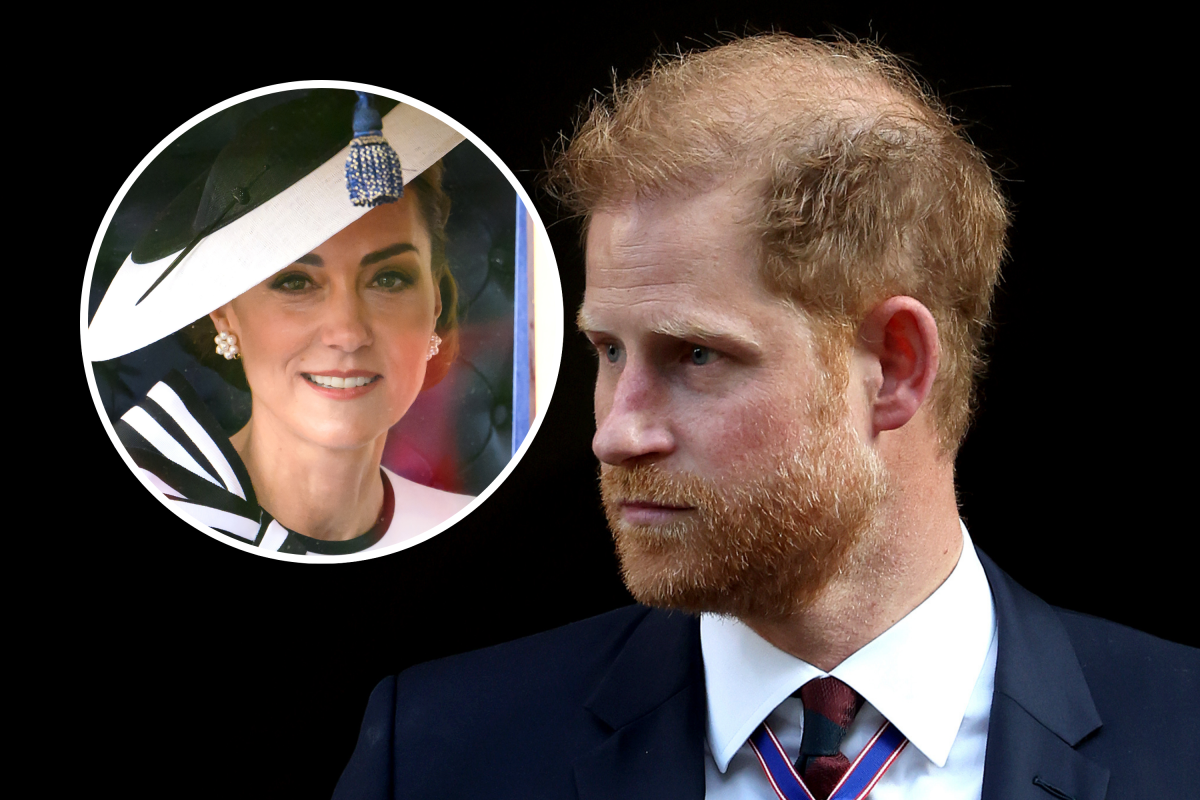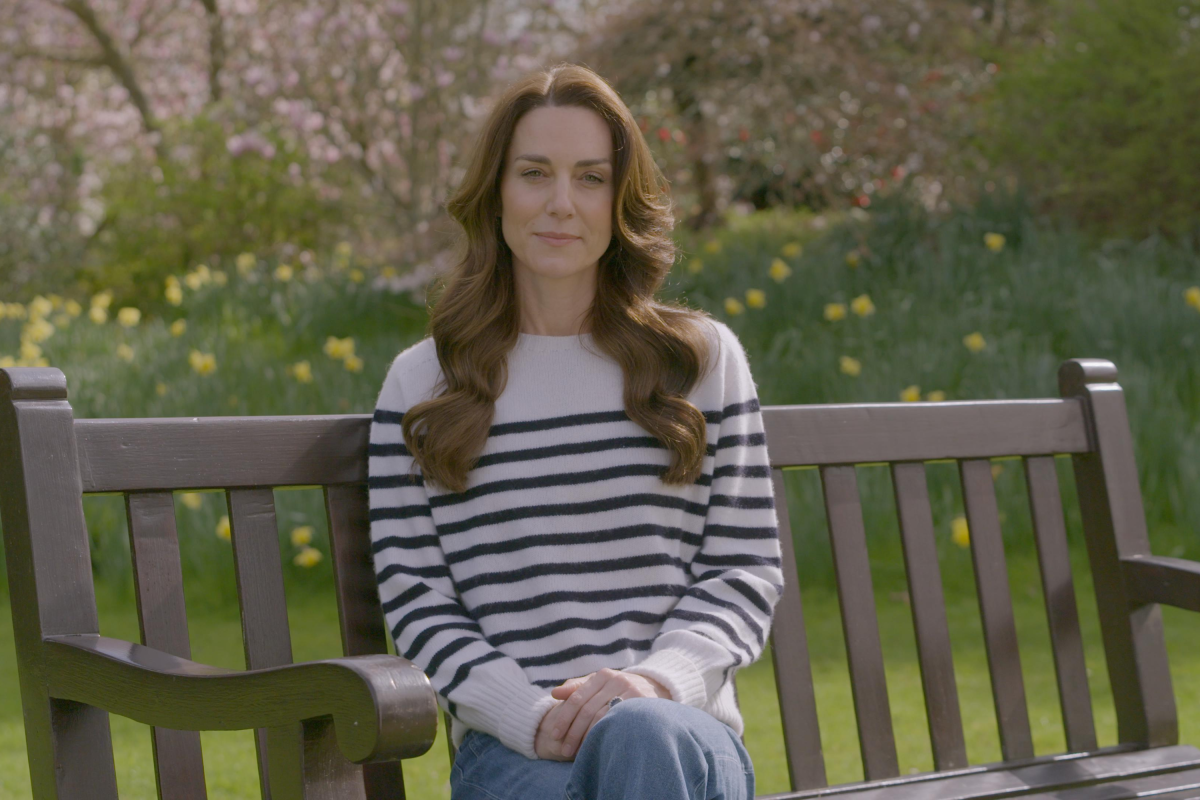Prince Harry should speak out and denounce the abuse and online conspiracies targeted at his sister-in-law, Princess Kate, during her cancer battle because not doing so could prove reputationally damaging, according to a new episode of Newsweek‘s The Royal Report podcast.
Harry and his wife, Meghan Markle, have not yet addressed the online harassment directed at Kate by social media users professing to be their fans, despite both highlighting that the monarchy and members of the royal family failed to speak out when similar abuse was directed at Meghan.
When Kate announced her cancer diagnosis in March, the duke and duchess did issue a clear message of support, saying via a spokesperson that: “We wish health and healing for Kate and the family, and hope they are able to do so privately and in peace.”
However, chief royal correspondent Jack Royston told Royal Report listeners that the absence of a direct appeal to stop the spread of misinformation about Kate’s condition, in part by the couple’s fans, could leave them vulnerable to reputational damage.

Though Harry and Meghan are obviously not directly responsible for their fans’ social media posts, Royston suggested that not addressing them contradicts their position as campaigners for online safety, and Harry’s position as a member of the Aspen Institute’s Commission on Information Disorder. Speaking out, he said, would shield them from attacks in the British press.
“I personally think there’s a way this could wind up reputationally damaging them,” Royston noted.
“Meghan complained very vocally about the social media abuse she faced, particularly in 2019, and she said it was almost unsurvivable. And Harry and Meghan have made campaigning against misinformation and disinformation online a big part of their brand. But their own fan base, using accounts that have their names…and often their photographs on their profile pictures, have been inflicting basically misinformational warfare against Harry’s sister-in-law, and Harry and Meghan have kind of stood by and watched it happen.”
“Some might argue that the royals did the same thing to them,” Royston suggested. “It’s not necessarily untrue, but there is a problem with that perspective because Harry and Meghan have been absolutely damning of Harry’s family for standing by and doing nothing.”
Where the royal family have maintained their “never complain, never explain” position, staying silent in the belief that to speak out will likely draw more attention to issues, Royston said that Harry and Meghan’s repeatedly stated public position has been the opposite.
Meghan, in particular, has suffered regular criticism and abuse from online trolls and social media, something that has repeatedly been raised by the couple in an attempt to highlight their own experiences.
The targeting of Kate, therefore, exists now within a wider context of damaging online discourse. Both examples, though different, are linked by the mediums of communication used to spread misinformation.
“Harry said to Anderson Cooper in his 2023 60 Minutes interview that ‘There comes a point when silence is betrayal,'” Royston said.
“These were his words about the way that his family responded to his requests for them to take on the media in defense of Meghan. So, Harry does think that there’s an obligation to speak out and to intervene, and Harry does think that doing so would have a positive impact on the debate, and he doesn’t subscribe to ‘never complain, never explain.’ But he hasn’t intervened to help out Kate.”
Harry and Meghan do not have a duty of care in relation to Kate, whereas they might reasonably argue the monarchy did have a duty of care in relation to Meghan. However, such finer points can easily slip through the cracks in public discourse.
Royston highlighted that Harry and Meghan’s initial statement of support could reasonably be interpreted as an “implicit suggestion” that the couple’s fan base should have “laid off.” However, he concluded that “they haven’t said it explicitly” and that “clearly nobody paid particular attention to those words, or at least certain significant figures within the Harry and Meghan fandom did not listen to that message.”

Harry’s role as a commissioner on information disorder at the Aspen Institute, Royston said, requires the prince to “be the bigger person” when it comes to Kate.
“He set himself up as a campaigner against misinformation and disinformation. And if you want to be viewed that way and to have that role, you do have to be the bigger person,” he said.
“Being the prince who takes a stand against misinformation brings with it a responsibility for Harry to put himself to one side in service of the public good.”
On how Harry and Meghan could approach the subject with fans moving forward, Royston suggested it could be achieved with a simple reference in a wider statement about Kate’s cancer recovery.
“They could at some point try to work into another interview, or something like that, just some positive supportive comments that denounced the conspiracy theories. I think that is the key element,” he said.
“They did say that they hoped Kate would be able to recover in peace, but they have never actually said that the conspiracy theorists are wrong. That would signal to people that they don’t support the way that Kate was treated in a really clear way, and in so doing, it serves to protect them from being damaged reputationally by association.”











